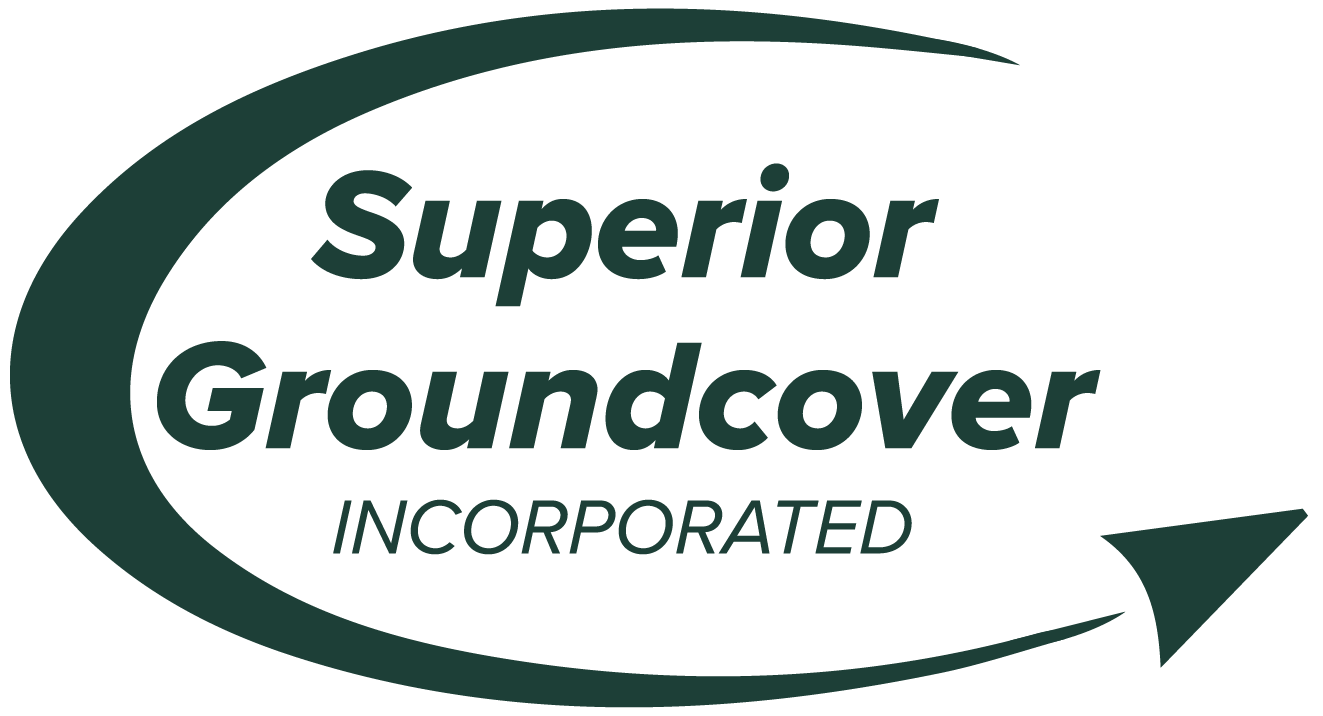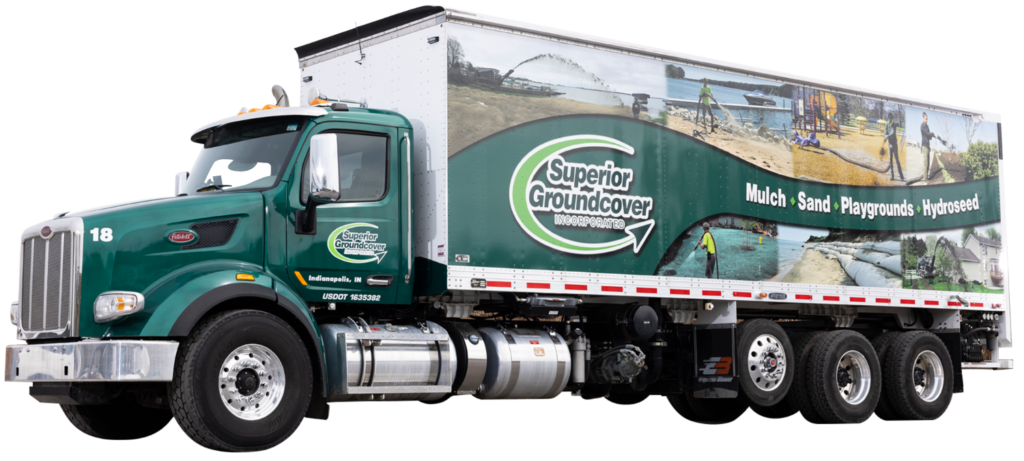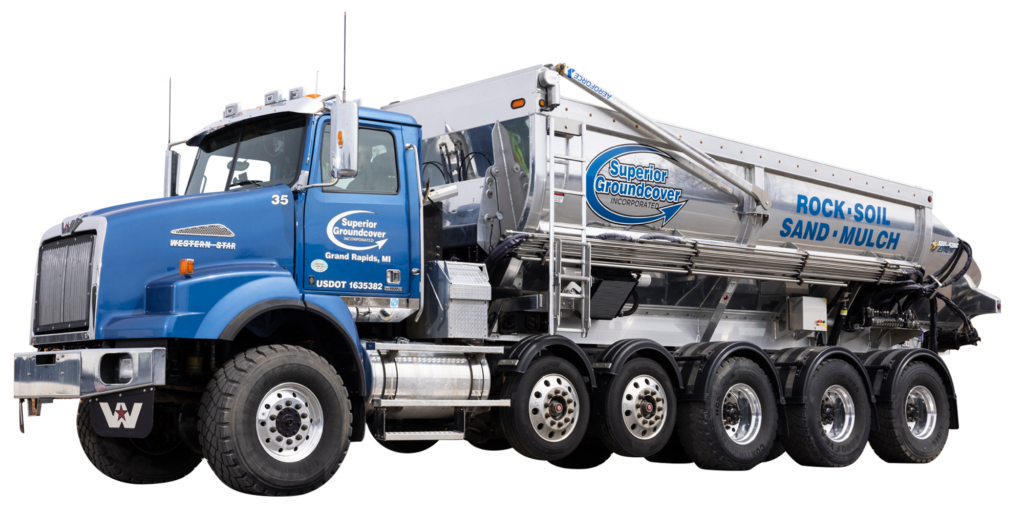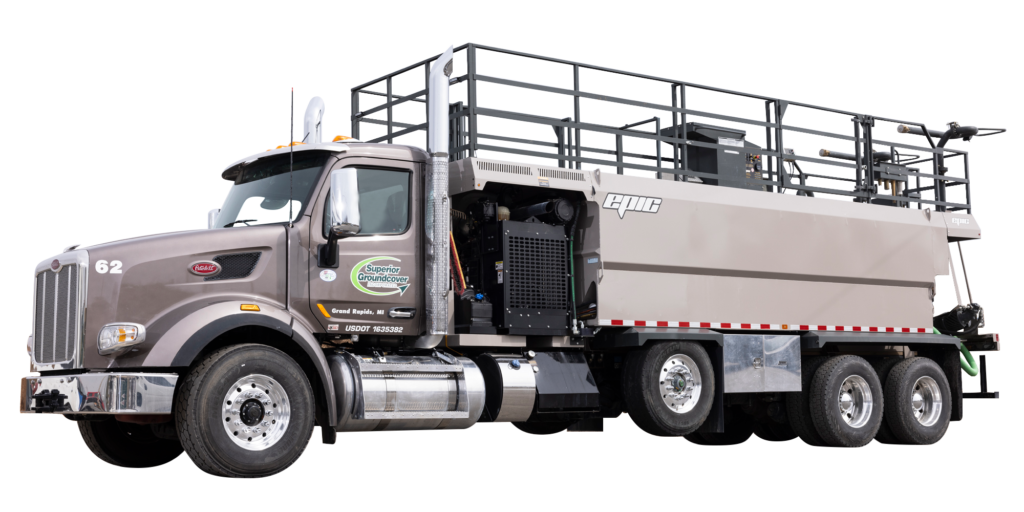Whether you want to give your landscaping project that coveted, polished look or you are covering a playground area to keep kids safe, you want to choose the best type of mulch for your landscaping project.
With so many different types of mulch, it can be difficult to know which type of material to choose. This ultimate mulch guide will give you all the information you need to select the right material for your project.
What is Mulch?
At its core, mulch is a material spread on top of the soil.
Although mulch makes your landscaping projects look more attractive, it also helps with retaining soil moisture and suppressing weed growth.
For playgrounds, mulch has an added benefit of cushioning any falls and keeping kids safe.
Generally, when people think of mulch, they automatically imagine a bed of wood chips covering the ground. However, that is just one type of mulch.
There are two main categories of mulch: organic and inorganic mulch. Within those categories there are numerous materials to choose from.
3 Popular Organic Mulches And Their Benefits
Organic mulches are natural materials that break down steadily and help improve the quality of your soil as they decompose. They also encourage earthworm activity which improves soil structure. Since it decomposes, organic mulch will need to be replenished periodically.
Technically, organic mulch could be anything from wood chips to straw mulch, pine needles or grass clippings. Although all inorganic mulch options have their benefits, materials like straw and grass clippings don’t leave that polished look most homeowners and businesses want. Wood-based mulches are the most aesthetically pleasing and longest lasting organic mulch options.
It’s important to understand that not all wood mulch is quality mulch. Although you can easily find cheap and even free mulch, you are running the risk of adding pesticides, bugs, or even weed seeds to your landscape. Choosing high-quality mulch from a company you can trust will save you time and money in the long-run.
Bark Mulch: For Aesthetics and Nutrition
Bark mulch is made from tree bark that has been chopped into fine pieces. People are drawn to it for its uniform look and natural feel. Bark mulch is great for ornamental beds, trees, and shrubs.
If you are placing mulch around your vegetable garden, you will want to avoid colored wood mulch or bark. Colored mulches are often treated with chemical dyes that can be absorbed into your soil and your vegetables.
Wood Chip Mulch: For Durability and Soil Health
Contrary to popular belief, wood chip mulch is not the same as bark mulch. Wood chip mulch generally includes both the bark and wood pieces. It has a more inconsistent texture, giving it a more rustic look.
Wood chips are usually less expensive and last slightly longer than bark mulch. Since the pieces are generally bigger, wood chips can generally cover more ground than bark.
Ultimately, wood chips and bark mulch share many of the same benefits. The biggest deciding factor between these two is going to be your budget and the look you are going for with your landscaping project.
Certified EWF Playground Mulch: For Safety
When it comes to playgrounds, you don’t want to head to the hardware store and throw down any bag of wood mulch you find. Certified Engineered Wood Fiber (EWF) playground mulch is designed specifically for play areas.
Certified EWF playground mulch is made with the pulpy interior wood fibers of a tree, making it less abrasive and much better for cushioning falls.
Like regular wood mulch, certified EWF playground mulch is environmentally-friendly. It can strengthen the structure of soil while increasing the soil quality. As an added bonus, wood mulches absorb water, helping reduce the likelihood of playground flooding.
Inorganic Mulches and Their Benefits
Inorganic mulches are made of synthetic materials like landscape fabric or plastic materials. They can also be sturdier, natural materials that don’t decompose as quickly, like rocks and stones.
For most projects, organic materials are preferred because they improve soil structure while protecting your plants (or your playing kids). Some people are drawn to inorganic materials because they don’t need to be replaced each year. Inorganic materials do cost more to place initially but could save you money long-term.
Rock and Stone Mulch: For Longevity and Low Maintenance
If your plants like extra heat or need good drainage, rock or stone mulch might be a good option. Stone mulches are beneficial in areas where a durable, low-maintenance material is needed, like on pathways, driveways, and around perennial beds.
Since rock and stone come in a variety of colors and sizes, they offer more variety to landscape designs. These materials are great for weed suppression, improving drainage and preventing erosion but they won’t improve your soil health like an organic mulch would.
Rubber Mulch: For Durable, Low Maintenance Projects
Rubber mulch is typically made from recycled tires. Despite its ability to prevent weed growth and insulate soil, rubber mulch has sparked plenty of debates about safety and environmental impact.
The chemicals and toxins from the rubber soak into the soil and the surrounding plants. Even if the rubber mulch is removed, the damage doesn’t disappear. Pieces of rubber mulch have been found in the ground years after playgrounds or rubber mulch beds have been removed.
When it’s hot outside, rubber mulch emits a strong rubber odor. That smell is volatile organic compounds, or VOCs, being released into the air. Exposure to VOCs can cause short-term symptoms like headaches, nausea, and breathing problems while long-term exposure can cause damage to the nervous system and even cancer.
If potential health problems weren’t bad enough, rubber mulch can also be a fire hazard. For these reasons, we generally don’t recommend using rubber mulch for your playground or your landscaping needs.
Making the Right Choice for Your Landscape
To choose the best type of mulch to use for your project you have to consider:
- Your budget
- Your plants’ needs (like soil temperature and drainage)
- The climate
- The primary function of the mulched area
For flower or vegetable gardens and areas around trees and shrubs, organic mulches like bark are usually best. For playgrounds, we always recommend certified EWF playground mulch. For high-traffic areas that need maximum durability and drainage, rock or stone is probably your best option.
If you are a landscaper or excavator in the Midwest trying to choose the best mulch for your landscaping project and the most efficient way to place it, contact Superior Groundcover for an estimate.
Our expert team and specialized blower and slinger trucks can place a variety of organic and inorganic materials 7 times faster than a team could by hand. Plus, we carry the highest-quality mulches you can find. We will make your landscape shine in a fraction of the time.




